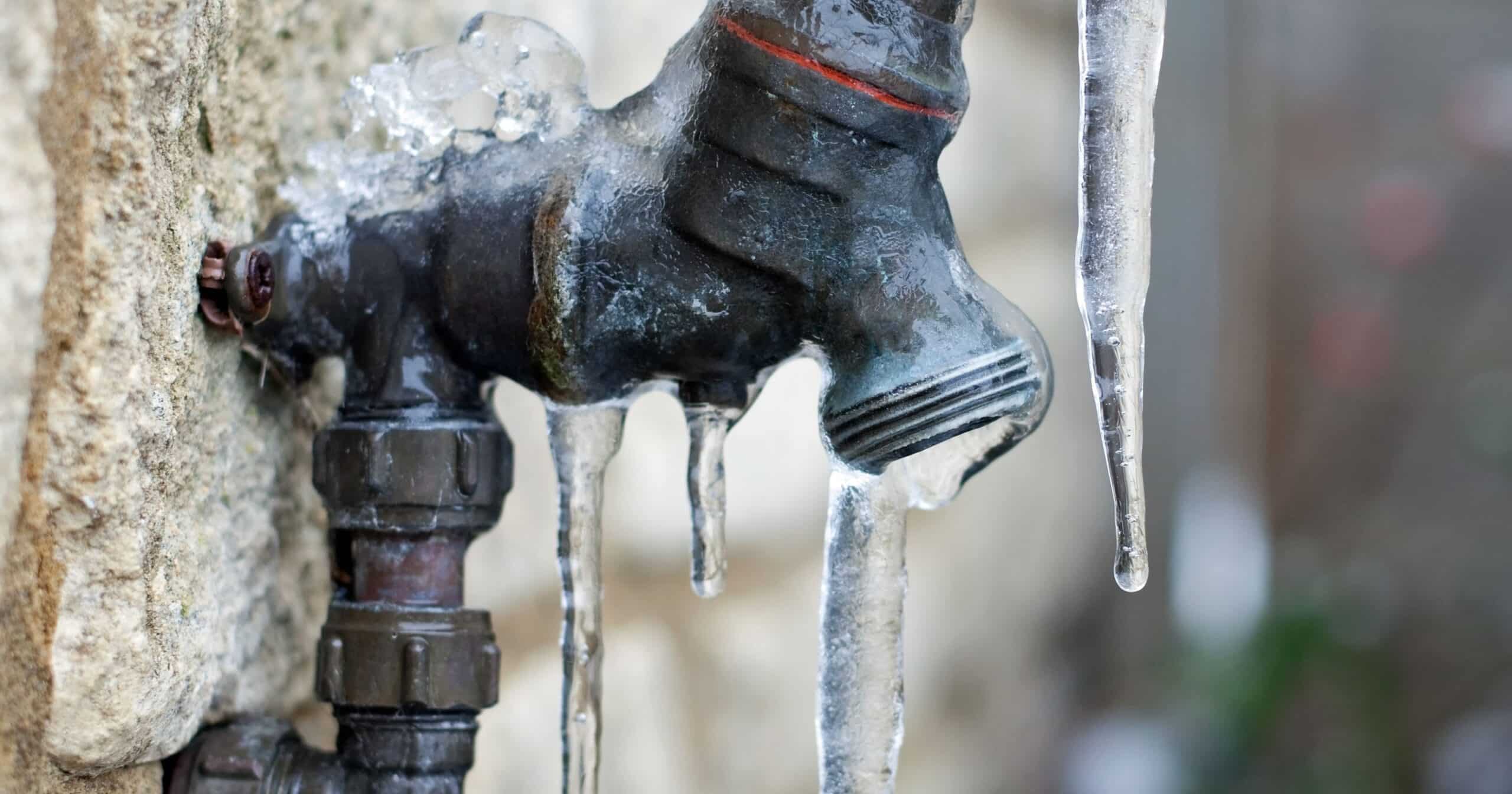Severe winter weather can be brutal on your home’s plumbing system. As temperatures drop, your pipes become susceptible to freezing, cracking, or bursting. By taking preventative measures and monitoring your pipes throughout the winter, you can prevent them from freezing and the costly damages that follow.
Why Do Pipes Freeze?
Unlike most liquids, water expands as it freezes. This expansive property puts an enormous amount of strain on both metal and plastic pipes. During winter, when pipes are notorious for constantly freezing and melting, they are more prone to cracking or bursting.
The pipes in your home most susceptible to freezing are those exposed to severe cold, like outdoor hoses (don’t forget to unhook the hose), swimming pool supply lines, and water sprinkler lines. Pipes in basements and crawl spaces can also freeze quicker than others in the home due to their closeness to the outdoors or lack of consistent heat.
5 Tips to Keep Pipes From Freezing
As the cold weather sets in, it’s essential to continue inspecting the pipes in your home. Don’t wait until the coldest day of the year to take action. Preventative measures before frigid temperatures hit are vital in keeping a fully functional plumbing system in the winter.
These tips will help preserve your pipes through harsh winter conditions:
1. Keep a Consistent Temperature
Keep your thermostat set to the same temperature throughout the day and night. While it’s tempting to continually adjust the thermostat as temperatures fluctuate throughout the day, the constant circulation of warm air can prevent costly damage to your plumbing system. Your heating system will work more efficiently if set to one temperature all day long.
2. Insulate Pipes
If water pipes run against an exterior wall in your home, ensure they are properly insulated. Freezing temperatures in unfinished basements and crawl spaces can put your pipes at risk, so focus on these areas specifically.
There are different options when it comes to insulating your home’s pipes. Since frozen pipes are prevalent in homes nationwide, pipe insulation products are widely available at most home stores. Between foam insulation, heat tape, and thermostat-controlled heat cables, there are various options to prevent your pipes from freezing this winter.
3. Open Cabinet Doors
Kitchen and bathroom sinks tend to be against an exterior wall in many homes. These areas are not insulated well, and cold air from outside can freeze the pipes beneath the sinks. To help combat the intrusion of cold air, leave the cabinet doors open to ease the movement of warmer air.
For more severe temperatures, consider placing a space heater pointed toward your water pipes to ensure there is no possibility of freezing. Just don’t leave them unattended!
4. Turn on Faucets
You can also run water to avoid frozen pipes when the temperature is freezing or below. Allowing your faucets to drip will relieve pressure inside the pipes, helping prevent freezing. As temperatures plummet, be especially mindful of your drain lines, as these can quickly freeze.
As we’ve said before, focusing on the pipes closest to the outdoors is crucial, so make sure to turn on the faucets on exterior walls specifically.
5. Seal Any Air Leaks
Inspect your home before winter temperatures set in to ensure no cracks or openings let in cold air. Seal holes around the piping in interior or exterior walls and sill plates where your home rests on its foundation. Additionally, if your home has a garage, ensure all garage doors are closed unless entering or leaving.
With the average water leak causing up to $7,000 in damage, it’s essential to safeguard against the possibility of a frozen pipe. While the steps mentioned above are good places to start, frozen pipes and leaks are always possible.
With a complete home plumbing inspection, Fayette’s expert plumbers can assess your home’s plumbing and help protect it against freezing temperatures. Contact us if you need replacement, repair, or maintenance on your Lexington home’s plumbing system, or if you simply would like a trusted professional to come and look at your plumbing.


 Skip to content
Skip to content

